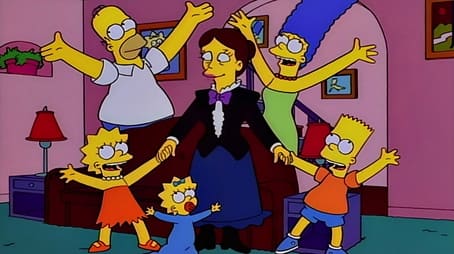
Sorry, we have not watched this yet.

Marge is stressed by the demands of motherhood and the Simpsons get a magical British nanny, who floats down from the sky holding an umbrella.
Sorry, we have not watched this yet.